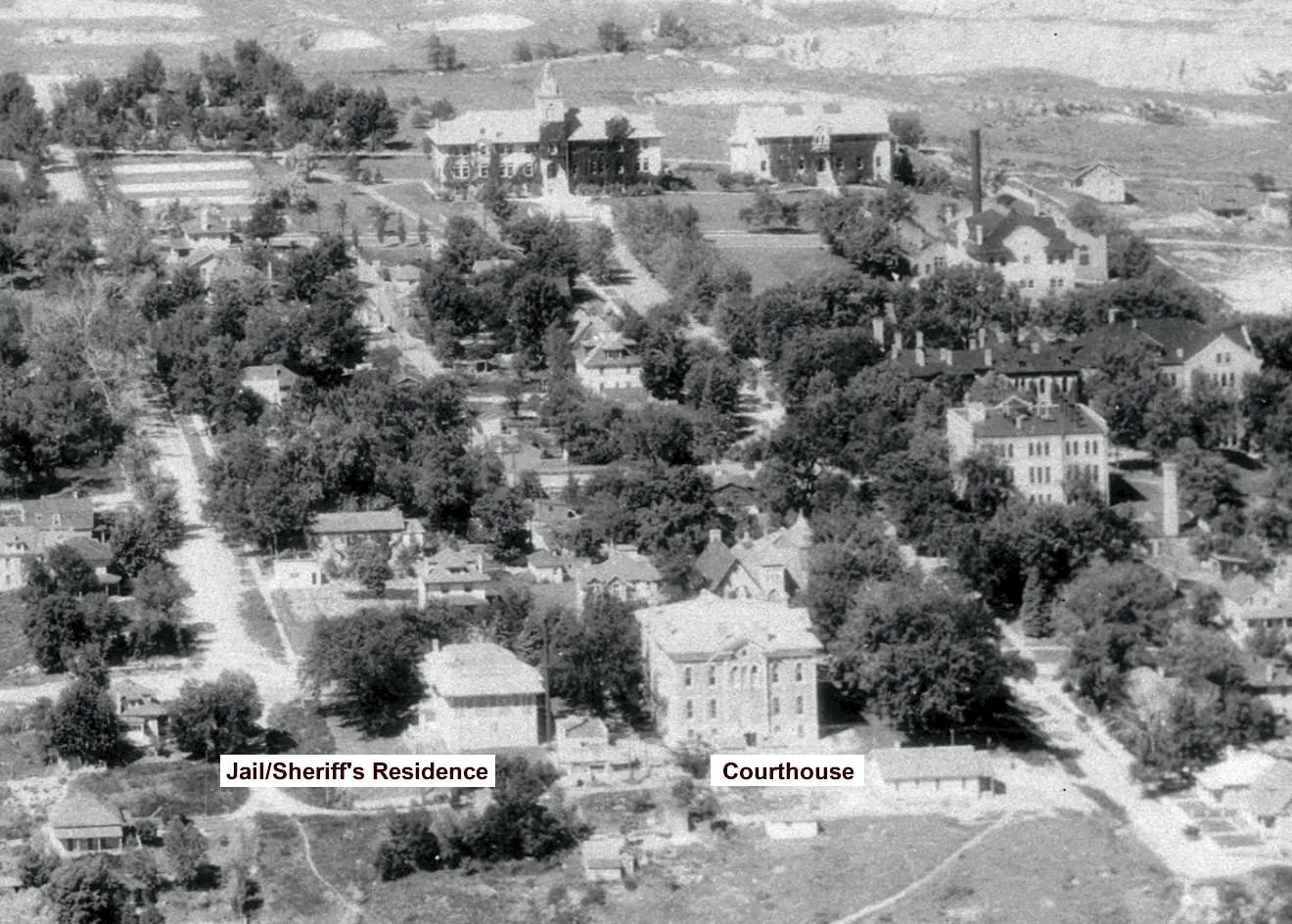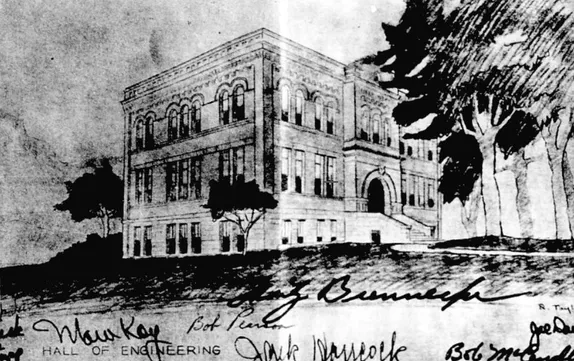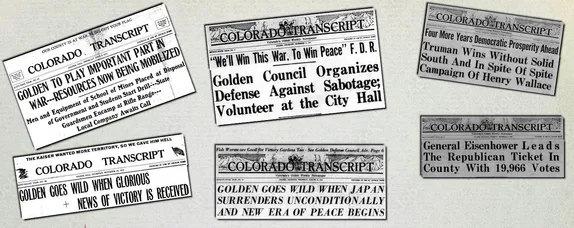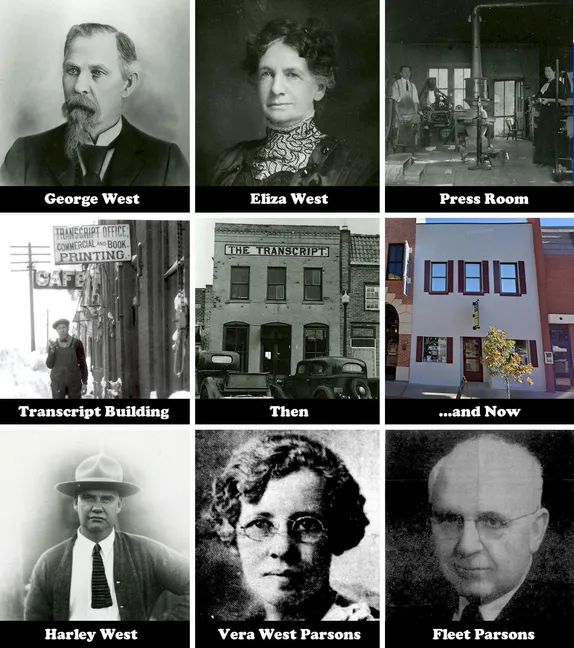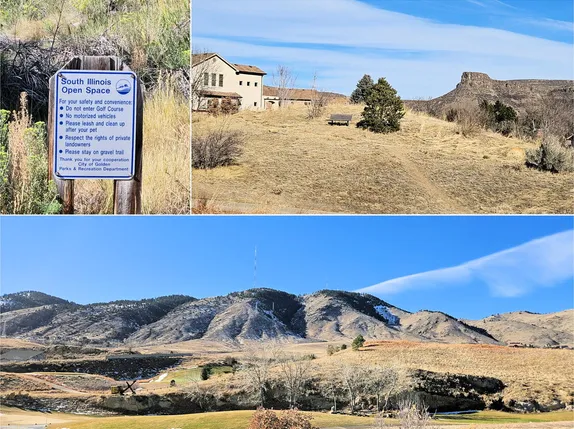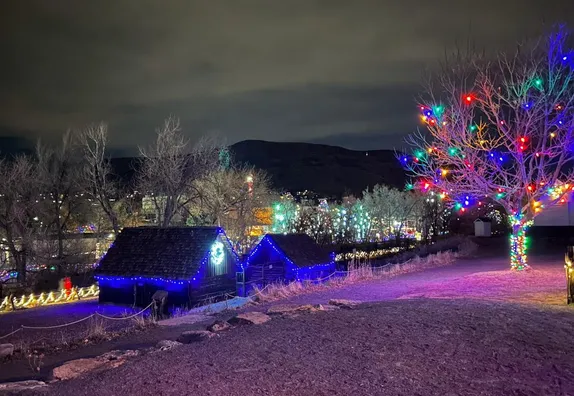61 Years Ago
The July 11, 1963 Colorado Transcript told the tales of three cornerstones. Public buildings are often equipped with hollow cornerstones, which contain items significant to the date of the construction, such as coins and newspapers. When the buildings are demolished, people open those cornerstones with great interest.
The years after World War II brought great population growth to Jefferson County, and many of our oldest buildings were demolished in favor of larger, more modern buildings. As a result, opening old cornerstones became a frequent event.
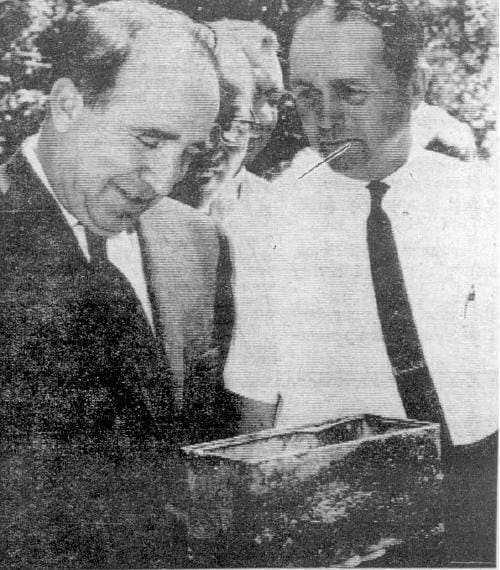
The July 11th Transcript described the ceremonial opening of the cornerstones from the 1878 courthouse and the 1913 sheriff’s residence/jail. Unfortunately, cornerstones are often subject to the vicissitudes of time and moisture, and unveilings are often anti-climatic. So it was in this case.
Former Mayor Clark B. Carpenter gently lifted the rusted metal box from its ground-level casket and placed it on the stone. He turned it upside down. Only moldy dust sifted out.
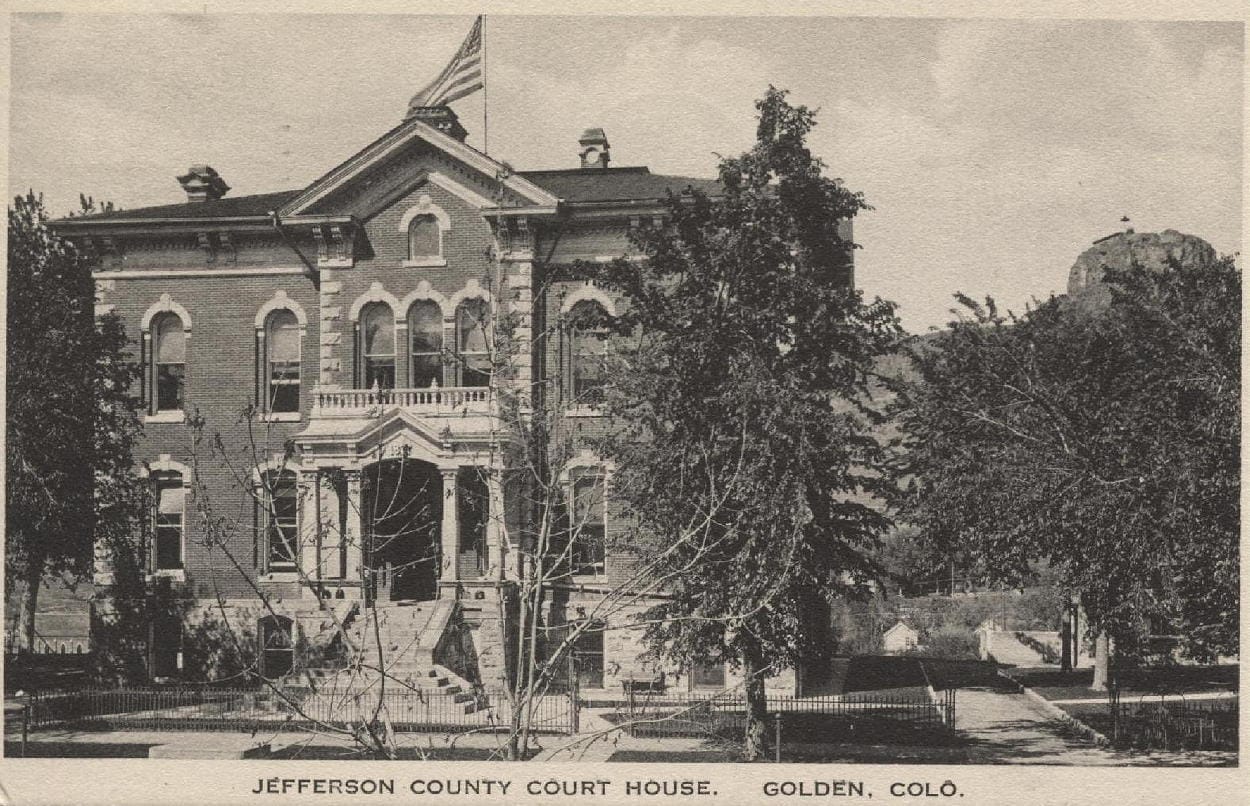
The assembled group decided to turn the box over to the State Historical Society to see if they could make sense of the contents. According to historic records, the box should have included “a ticket from the first state election in Colorado, a tiny bottle of wine, an issue of the Colorado Transcript, Masonic papers, an apron, gold coins from 1854-56, silver coins from 1853-76, and a $100 Confederate note.”
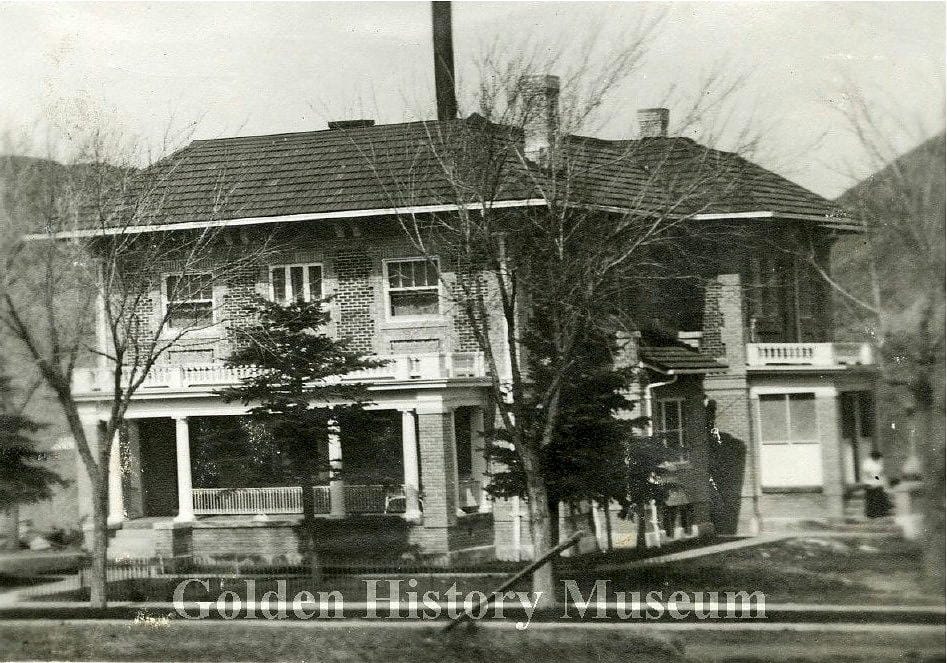
The article didn’t specify the contents of the 1913 jail/sheriff’s residence cornerstone, but said that “the newspapers” were in “somewhat better condition.”
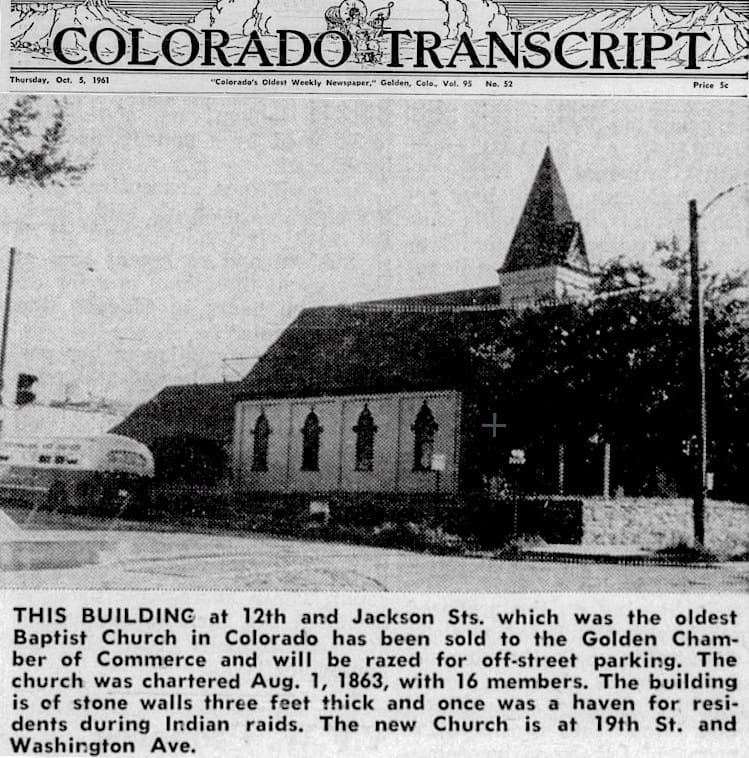
The same edition of the paper included an article about the cornerstone from the 1866 Baptist church. That building, formerly located at 12th and Jackson, had been demolished in 1961, but church members had been unable to locate the cornerstone. It took two years, but a local man finally found it in a pile of stone blocks that he had intended to use in a retaining wall. Upon noticing that one of the sandstone blocks was hollow, with a lid cemented in place, he broke it open and discovered a rusty strongbox.
Like the County Commissioners, the Baptists found their cornerstone contents to be in poor shape. The box contained the moldy remains of a Bible, several old newspapers, and what appeared to be tablet paper which had probably been a list of donors.
Thanks to the Golden History Museum for funding the online collection of historic newspapers, and thanks to the Golden Transcript for documenting our history since 1866!

